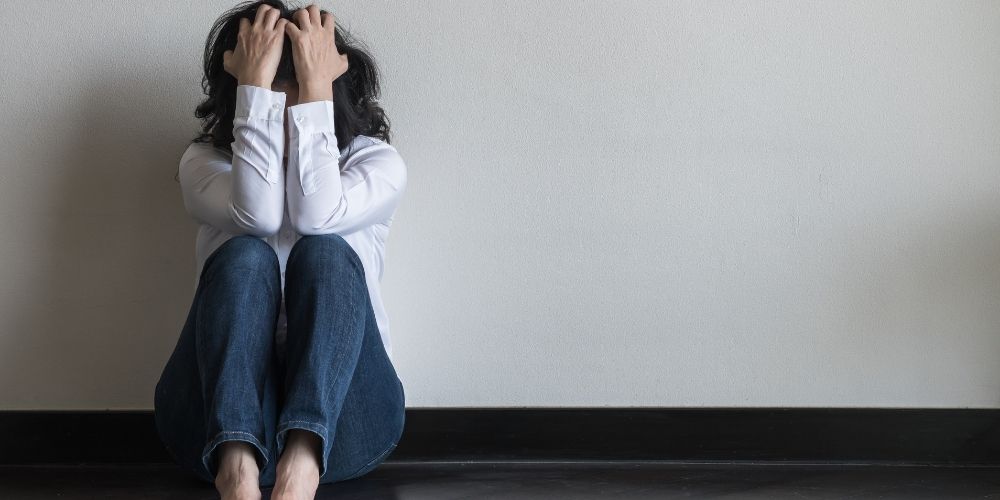In the field of mental health, a revolution is taking place. The public is becoming more aware of the pervasive and harmful impact of untreated mental illness, as well as the understanding that therapies exist to reduce and eradicate the harm. As a result, health care professionals, elected leaders, citizen groups, and associations are banding together to support mental health outreach. Medical mental health counselors are at the heart of these efforts.
What is professional mental health counseling, and what does it entail?
According to U.S. News & World Report, it is assisting people from all walks of life in resolving their problems. Clinical mental health counselors collaborate with psychiatrists, social workers, support networks, and long-term recovery providers to formulate and incorporate total care plans, according to U.S. News & World Report, using their real-life expertise and professional knowledge.

According to U.S. News & World Report, clinical mental health counselors are responsible for diagnosing mental and emotional conditions. They assess their clients’ emotional and physical well-being, detect addictions and behavioral issues, and assess their readiness for treatment. Counselors help clients acquire skills and learn habits that place them on the road to mental health by designing recovery plans and introducing them to clients and their families.
Taking on the Addiction Epidemic
Substance abuse and behavioral conditions are common issues that clinical mental health counselors assist their clients with. These health practitioners, also known as drug counselors, educate clients about how to manage stress and deal with challenges they face on the path to recovery. Addiction counselors, according to the Bureau of Labor Statistics (BLS), work with clients individually and in groups, often incorporating concepts pioneered by Alcoholics Anonymous and other 12-step programs.
Clients’ goals for mental health counselors are to rebuild their self-esteem, re-establish personal relationships, and re-establish professional careers. Crisis intervention, when the client’s life or the lives of others is in jeopardy, and work with at-risk groups, such as youth, veterans, and individuals with physical disabilities, are two specialties within the field of addiction therapy.
Counseling for Families and Marriage
Few responsibilities in the mental health profession are more difficult than those of a marriage and family counselor. According to U.S. News & World Report, the job involves putting oneself in the center of families whose members have experienced or are experiencing an emotional or mental crisis. On a regular basis, family and marriage counselors work with clients who have suffered from violence, infidelity, grief, and other traumas; their patients may be suffering from depression or post-traumatic stress disorder.
The aim of family and marriage therapy is to encourage clients to talk about what they’ve been through and share their feelings, as well as to help them adapt to tough family circumstances like divorce or financial setbacks. According to the Bureau of Labor Statistics, family counselors’ primary goal is to assist clients in processing their emotions and developing strategies for dealing with transition and addressing obstacles in their lives.
Mental Illness Diagnosis and Treatment
Most physical conditions are easy to diagnose, and the findings of diagnostic examinations and trials are often used. Mental disorder diagnosis, on the other hand, also necessitates patience since it can take a duration of monitoring and examination to ensure the disease isn’t caused by an underlying medical condition. To ensure a reliable outcome, these medical tests can need to be repeated over time.
The Diagnostic and Statistical Manual of Mental Disorders, published by the American Psychiatric Association, is often used by health practitioners when diagnosing mental illnesses (DSM-5). According to the National Alliance on Mental Illness, the manual includes a list of thoughts, symptoms, habits, and other requirements that patients must follow in order for physicians to make an official mental illness diagnosis (NAMI). After the practitioner has made a diagnosis, the patient’s mental health team will create a recovery plan and inform the patient of the plan’s outcomes and risks. Therefore, it is important to seek help and go for clinical mental health counselling.
Taking Care of the Elderly’s Mental Health
According to The New York Times, the number of older people seeking care for depression and emotional issues is on the rise in the mental health sector. The disorder is often the product of a physical ailment associated with old age, such as reduced mobility, but older clients are often encouraged to seek care for mental illnesses they have suffered with for a long time.
Mental health practitioners who specialize in treating older patients attribute the increase in seniors accepting care to the reduced stigma associated with seeking treatment for emotional problems and mental illness. According to NAMI, there are more than 6.5 million people in the United States over the age of 65 who suffer from depression. The elderly’s mental wellbeing problem is exacerbated by adjusting to new living conditions, working on small incomes, and dealing with chronic physical ailments.
Assisting People in Beating the Stress Monster
A little bit of stress can make us more resilient, but too much stress can cause trauma that is difficult to recover from, as psychologist Melanie Greenberg wrote in her Psychology Today column. Finances and employment are two major causes of stress, according to the American Psychological Association’s Stress in America report. Significant stressors can cause physiological overreactions, such as the release of hormones that speed up the heart, increase breathing rates, and increase blood flow. An overactive stress response leads to a weakened immune system and a higher risk of physical and mental disease in the long run.
According to the Manpower Demonstration Research Corporation, cognitive behavioral therapy is one of the most important techniques in the clinical mental health counselor’s arsenal for combating stress and other maladies of everyday life. It is intended to alter unhelpful habitual reactions and promote healthy habits (MDRC). Patients are encouraged to improve their relationships with family and friends, exercise regularly, eat a balanced diet, get plenty of rest, avoid drugs and alcohol, and, most importantly, accentuate the positive and reduce the negative through cognitive behavioral therapy.
Clinical mental health counselors at i-kare treatment center bring all of the pieces of cognitive therapy together in a simple regimen that the client will follow.
The Bottom Line
Life isn’t always simple. Also, the strongest of us need assistance from time to time in order to solve some of life’s most difficult problems. At some point in their lives, everybody will face challenges and overcome obstacles. If you’re dealing with anxiety, depression, low self-esteem, or some other issue, you should know that seeking mental health counselling is the perfect choice for you. You should realize that there is hope for a better future.
Get started by contacting i-kare treatment center today if you want to be a healthier, happier, and more fulfilled person.
The therapy partnership is a safe place where people can share their difficult and perplexing life problems and be treated with compassion, concern, and a genuine willingness to work together to find solutions. We will provide a healthy, compassionate, and nonjudgmental environment at i-kare treatment center by offering the best clinical mental health counselling in Florida.

